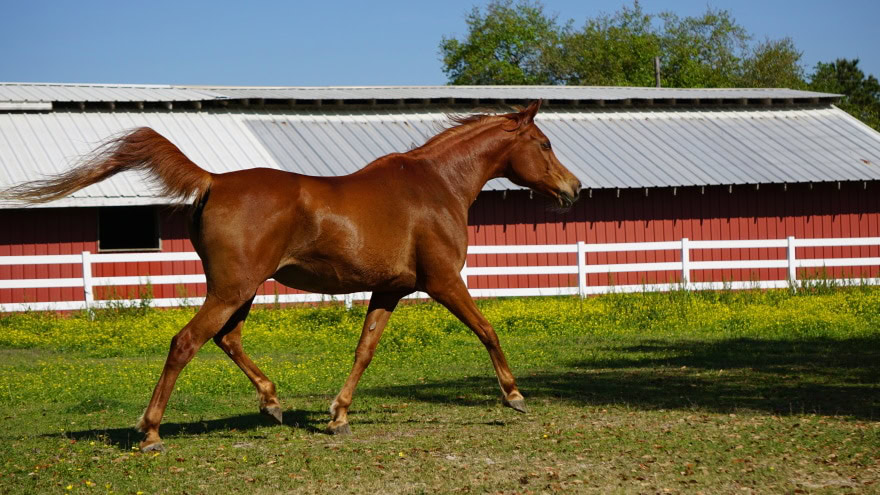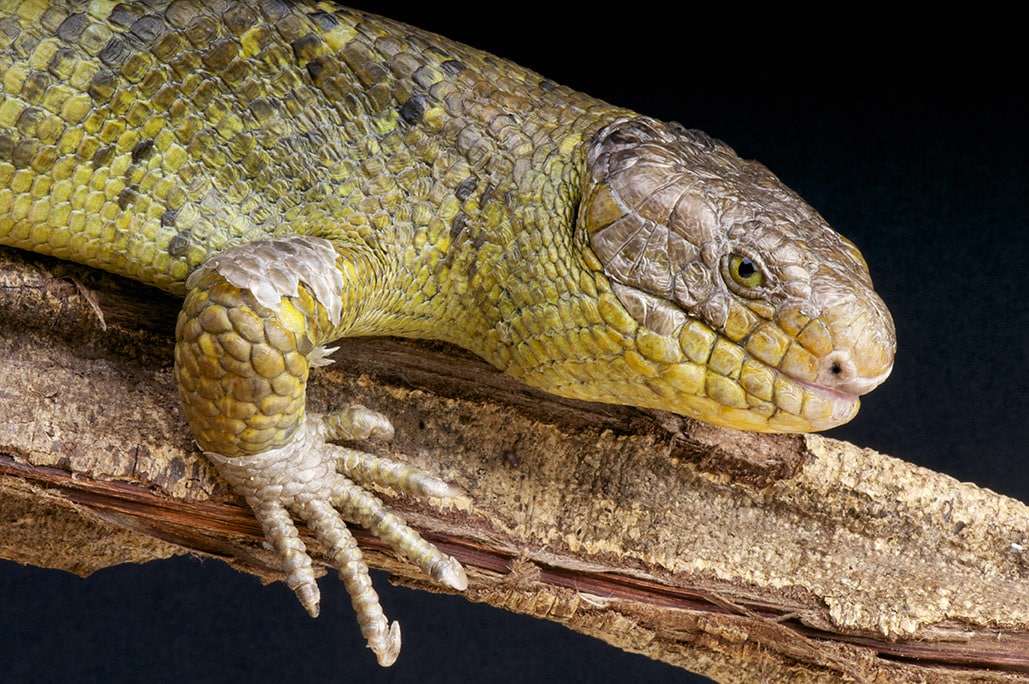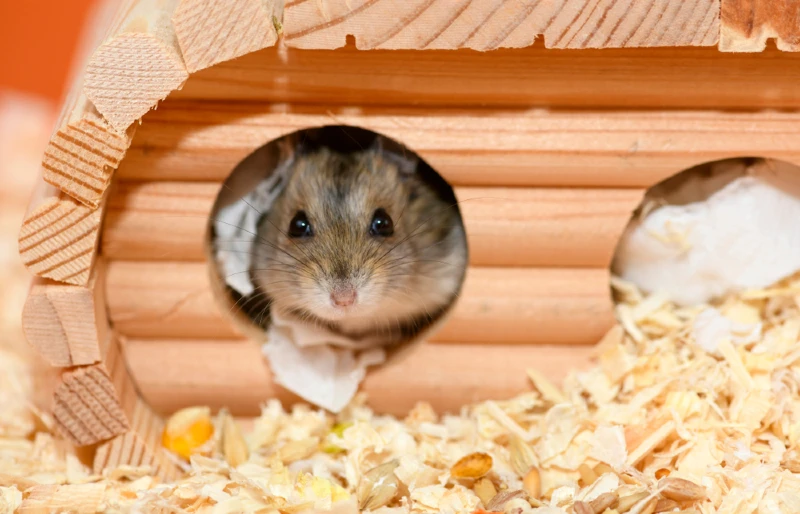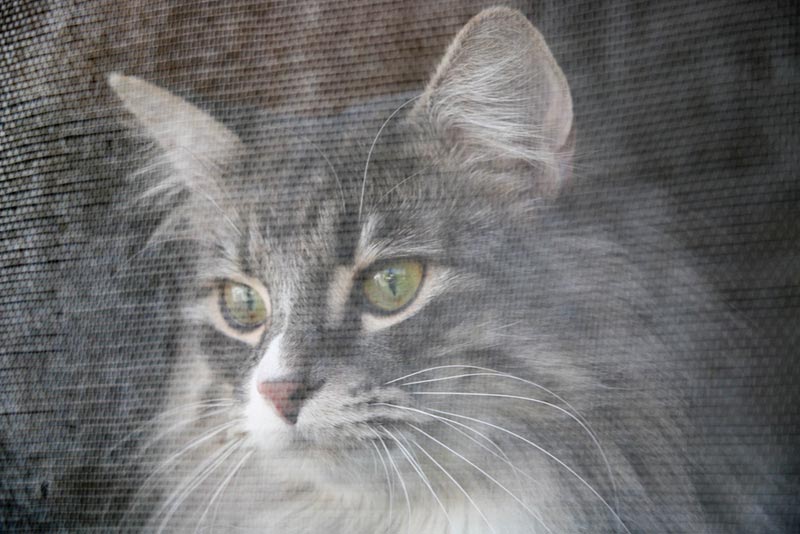Click to Skip Ahead
The smell of a barn, with the sawdust, fresh hay, and horses, smells like home—until it doesn’t. We’re not talking about the smell of dirty stalls; while that’s not the most pleasant aroma, it can be easily removed. We’re talking about the leftover smell of horse urine and ammonia. In some instances, the smell can even stick around long after you’ve cleaned out the stalls. If you’re a horse owner, it’s safe to say you know the smell we’re talking about!
Ammonia is more than just an unpleasant odor. Long-term exposure to ammonia can have serious health consequences for you and your horses, making clean-up a critical part of barn management. To help you neutralize the smell (and the ammonia), here are six ways to clean it up.

The 6 Tips to Neutralize Horse Urine
1. Muck Out Your Stalls Regularly
This should go without saying, but if your stalls are dirty, they’re going to smell. Ideally, horse stalls should be mucked out twice a day if horses are kept in them full-time. Remove any wet or soiled shavings and all manure and urine piles. If horses are turned out for most of the day, you can reduce your chore time to a once-per-day clean-up schedule.
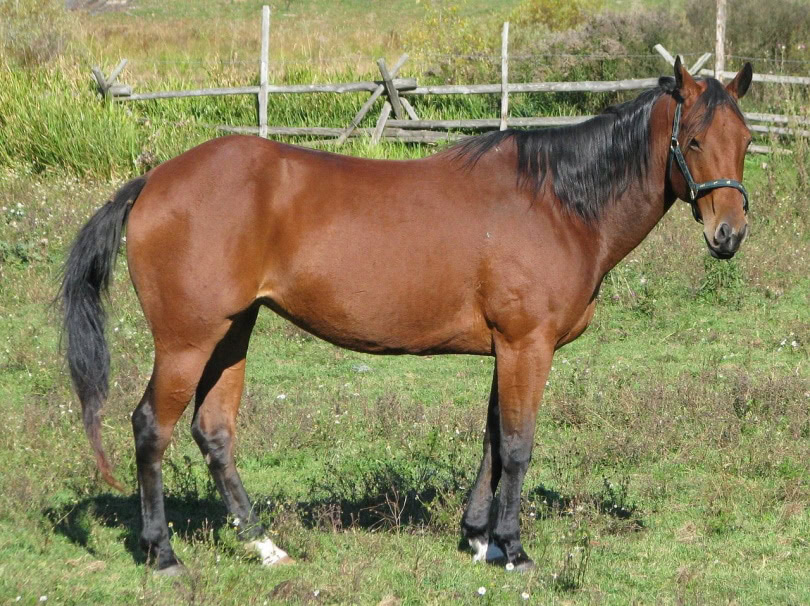
2. Make Sure Your Barn Has Adequate Ventilation
Horse stalls should have time to dry out and air out without a horse inside them. You can open doors and windows while your horse is outside. Adding ceiling and aisle fans will help with cross-ventilation and increasing airflow.
3. Design Your Stalls for Optimal Drainage
Do your best to ensure that urine doesn’t pool or seep inside your stalls. Stall mats with gaps allow urine to pool, even if you regularly clean them. Seamless stall mats and concrete floors don’t have the same problem. Wood and dirt absorb urine as it hits the floor, making it more likely that your floor will retain smells.
Adding more absorbent bedding like shavings instead of straw will prevent urine from hitting the floor in the first place and make it easy to clean up.
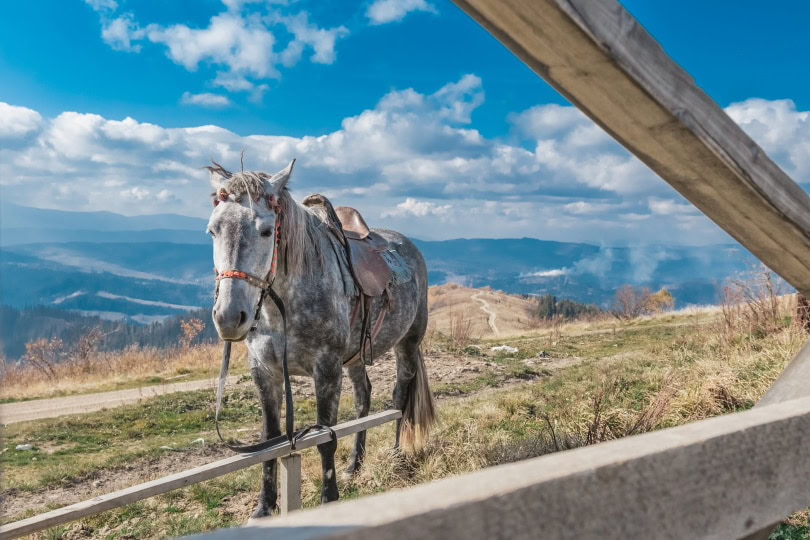
4. Dial-in Equine Nutrition
The ammonia in horse urine is a by-product of protein. Feeding your horse the correct amount of protein is essential, but don’t assume that more protein is better. High levels of protein can result in high levels of ammonia production. Consult your veterinarian or an equine nutritionist if you are unsure about your horse’s dietary needs.
5. Increase Your Horse’s Turnout Time
There are numerous reasons that horses should spend a lot of time outdoors. Fresh air, exercise, and socialization are the most obvious ones. Housing horses outdoors with adequate shelter or at least several hours each day is the easiest and best management practice to avoid barn smells.
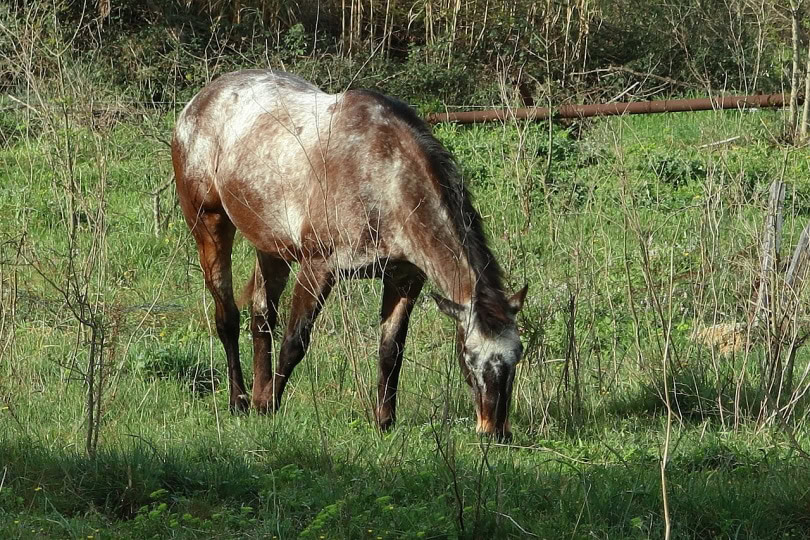
6. 6. White Vinegar and Baking Soda
If all else fails, scrub down your barn floor and stall mats with vinegar and follow up with a sprinkling of baking soda. Vinegar is a fantastic odor neutralizer that is non-toxic for your animals. Before putting shavings down in your stalls, spray your mats with vinegar and sprinkle baking soda. This will stop ammonia odors before they start.
What Is Ammonia?
When a horse is fed excessive amounts of protein, their body expels the extra in the form of urea through feces or urine. Natural bacteria feed on urea, resulting in the production of ammonia gas. While you can’t see ammonia, you can certainly smell it. In high amounts, ammonia gas causes burning sensations in the eyes, nose, and throat.
It is known to make people nauseous and dizzy, induce vomiting, and increase mucus and fluid production in the lungs. Ammonia exposure isn’t something to be taken lightly. It is classified as a highly toxic gas and hazardous for human and equine health.
How Does Ammonia Affect Horses?
If your eyes are watering while you’re mucking out your horse’s stall, you can bet that ammonia gas has already affected your horse. It can cause damage to horse’s airways and the lining of their respiratory tract. In some cases, it can be a contributing and aggravating factor in equine asthma and inflammatory airway disease.
Although the long-term, total effects of ammonia exposure aren’t known, research has indicated a link to negative effects on metabolic and reproductive hormones. We know that exposure to high ammonia levels negatively affects performance by impacting the immune and respiratory systems.
Conclusion
Neutralizing horse urine inside your barn is a critical component of barn management. It’s not only the culprit of unpleasant aromas, but high levels of ammonia exposure can also be hazardous to your health and your horse’s health. Luckily, there are a few things that you can do to keep your stalls and your barn clean and prevent overexposure to this toxic gas. Follow the tips in this article as part of your barn management to keep ammonia smells at bay.
Featured Image Credit: Trevor G Johnson, Shutterstock
